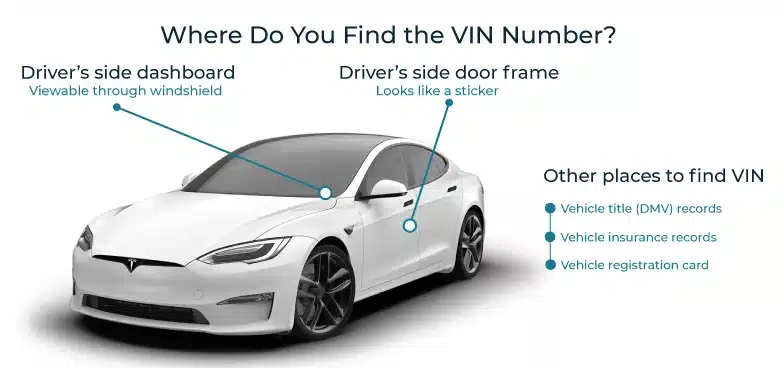
Peterbilt Recall Check
Check your Peterbilt recalls by VIN to uncover safety defects, risks, and available remedies. Simply enter your VIN to see repair details, claim free fixes, and maintain your truck’s safety and value.
What is a Peterbilt Recall?
A Peterbilt Recall is an official action taken by Peterbilt (or its parent company, PACCAR) to address a safety defect or non-compliance in a certain range of its trucks, similar to other vehicle recalls. The purpose is to keep drivers safe by addressing problems, usually at no additional charge.
Owners are notified by mail, but you can quickly verify online using your VIN or license plate number. Use our recall check tool to see active recalls and generate a free report in seconds.
Why You Should Check the Peterbilt Recall History?
Planning to purchase a Peterbilt? Do a recall check first. Using the VIN ensures hidden defects are fixed for free, protecting your safety and budget. Below are some reasons why you should check the recall:
Avoid Unexpected Repair Costs:
If a used truck buyer purchases a Peterbilt with an outstanding recall and the issue is not addressed, it may result in unexpected repair costs down the road. Running a recall check can help identify any outstanding recalls that need to be addressed before purchasing the truck, potentially saving the buyer from unplanned expenses in the long run.


Compliance
Checking a Peterbilt’s recall history is essential for safety and compliance. Manufacturers must fix defects for free, so staying proactive helps you avoid legal liability, protect resale value, and prevent insurance complications while keeping you and your passengers safe.
Check Common Safety-Related Issues
Checking your Peterbilt recall history is essential for uncovering safety issues like electronic systems, braking components, steering gears, and suspension parts problems. These issues can range from minor to severe and can potentially put the driver, passengers, and other motorists at risk. Knowing if a vehicle has any outstanding recalls can help ensure that it is safe to drive.

How Can I Check My Peterbilt truck for a Safety Recall?
Get the Peterbilt recalls report in under a minute by following these simple steps below.

Locate Your Peterbilt VIN
You'll need your Vehicle Identification Number (VIN) handy. On a sticker or plate on the driver's side dashboard, visible through the windshield, or on the driver's side door jamb when you open the door. The VIN is also found on your vehicle's title, registration, and insurance documents. Our lookup service works on any type of Peterbilt, current or classic.


Fill in the Form
Start your Peterbilt recall check now by entering your VIN in the form above. No VIN available? Just enter your license plate number and we’ll generate your recall report instantly.


Receive Your Peterbilt Recall Report
Wait for a few moments for the Peterbilt recalls report to be generated. Once it's finished, you can get the report on the recalls.
What is on the Peterbilt Recall Check?
In Detailed Vehicle History, a Peterbilt recall check provides VIN-specific details on any safety recalls that may affect your truck. Each record shows when the recall was announced, which component or system is involved, the potential risk, and the exact steps to fix it. Here is the breakdown:
- Date of recalls: Indicates when Peterbilt and NHTSA issued the recall.
- Affected Component: Lists the exact Peterbilt component, giving clarity on the defect and expected repair process.
- Consequences: Highlights the dangers of ignoring the defect, including accidents or costly damage.
- Next step for the affected Peterbilt: Confirm if your Peterbilt is listed under the recall and schedule repairs. With a complete Vehicle Report, you’ll also see past recalls and repair status.
A Peterbilt vehicle history report also includes accident records, lien/loan records, ownership records, and more. Review the records below:

Accident Records
Check if a Peterbilt truck has been in accidents. Access damage reports to understand hidden risks and make safer buying decisions.
Lien/ Loan records
Lien records show if a Peterbilt truck still has outstanding debt. Verify with a VIN check before purchase to ensure the lienholder has released ownership rights.
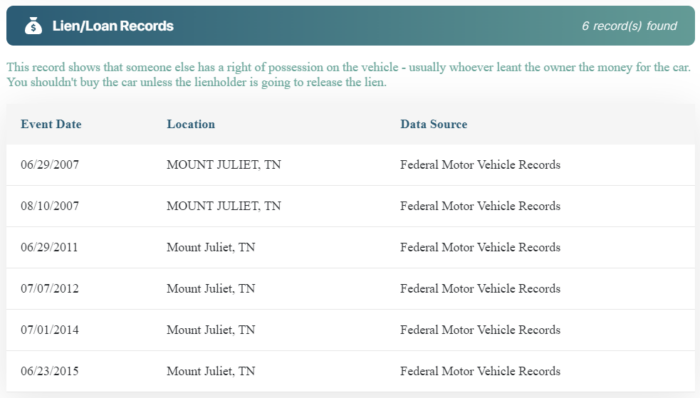
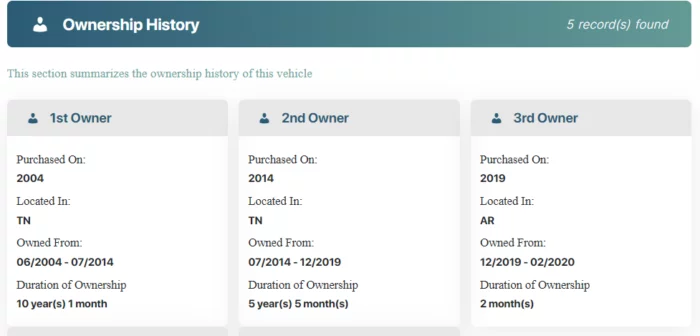
Ownership History
Ownership history reveals how many hands a Peterbilt truck has passed through. It builds trust, confirms care, and helps you assess recall compliance and future resale value.
Damage Verification
Damage verification highlights whether a Peterbilt truck has faced a recycling facility, dents and scratches, or even a minor/major damage incident, ensuring recall repairs aren’t masking deeper structural risks.
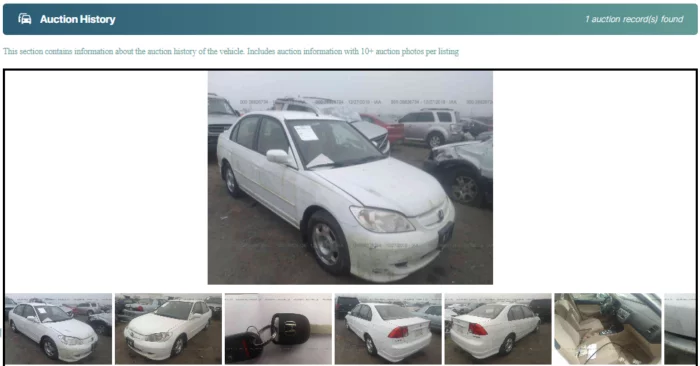
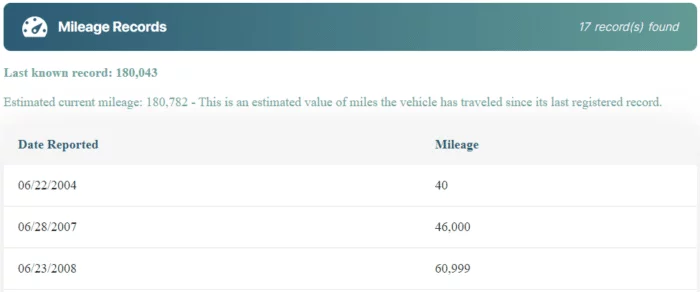
Mileage Records
Knowing exact mileage helps evaluate a Peterbilt’s longevity and resale value. Paired with recall history, it ensures you get a truck that’s safe, compliant, and trustworthy.
Title Check
Check the vehicle’s history to see if it has been designated “salvage,” “rebuilt,” or “lemon.” Reviewing the title and performing a VIN check ensures you uncover any possible title washing.
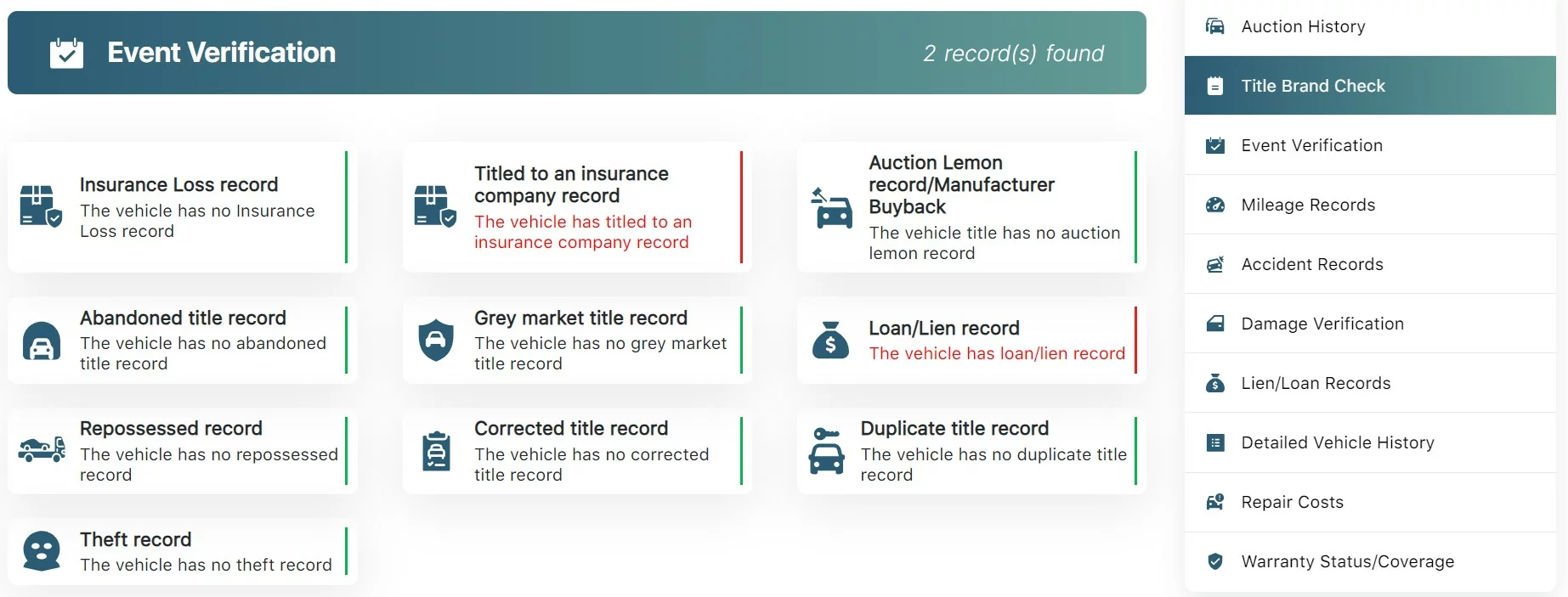
Common Issues Leading to Peterbilt Recall
Peterbilt is a brand associated with premium, technologically advanced trucks, even so they couldn’t be free from recall. Peterbilt recalls are typically related to defects in electronic systems, braking components, steering gears, and suspension parts. Below are some of the causes behind the Peterbilt recall notices.
ABS and ESC Faults
In December 2024, PACtruck filed an NHTSA recall for over 220,000 PACtruck trucks, including many 2021–2025 Peterbilt model and Kenworth trucks. Electrical interference on the power line carrier (PLC) network can shut down the ABS/ESC. Use a Peterbilt recall check now to see if your truck is included.
Brake system failures
Rear brake piping clearance
In August 2021, Peterbilt recalled certain 2021–2022 models because the Hill Start Assist valve was mounted too close to the rear axle, risking brake hose damage and loss of rear braking. More recently, on May 28, 2025, PACtruck filed recall 25V353 covering select 2024–2026 Peterbilt 367, 567, 548, and 589 trucks. If you own one of these trucks, use a Peterbilt recall check to confirm your VIN and book the free repair immediately.
Brake pedal detachment
In February 2023, PACtruck recalled over 8,000 trucks under NHTSA after discovering the brake pedal plunger could detach from the valve. The issue affects the 2021–2024 Peterbilt 536, 537, and 548 models. A failed plunger means no service brakes, raising crash risks. Dealers installed a retention bracket free of charge.
Fire risk
Fuel pump barrels
In November 2024, Cummins discovered defective fuel pump barrels in X15 diesel engines, prompting PACtruck to recall thousands of 2025 Peterbilt 567, 579, and 589 trucks. The defect can fracture the barrel, cause a fuel leak, stall the engine, and raise crash risk.
Alternator cable chafing
On June 15, 2023, PACtruck recalled 4,914 Peterbilt 579 trucks (2022–2023) after six under-hood fires were linked to alternator cables chafing against a frame bracket fastener. Earlier, from 2011–2016, Peterbilts were recalled due to cables rubbing refrigerant lines. Both defects risk fire. Dealers fix the routing for free. Run a Peterbilt recall check to see if your truck is listed.
Fuel tank damage from U-bolts
In Fall 2023, PACtruck recalled over 1,300 Peterbilt 567 and 579 trucks (2021–2024) due to U-bolts cut to inconsistent lengths. These bolts can wear through fuel tanks, leading to leaks and possible fires. Dealers fix the clearance issue or replace damaged tanks free.
Fuel filter hoses
In late September 2023, a recall was issued for nearly 900 Peterbilt medium-duty trucks built in 2023–2024 (536, 537, 548 models). This defect, related to Cummins Recall C2717, increases the risk of engine stalling and, if fuel leaks near an ignition source, a fire hazard.
Jumper terminal cable chafing
In February 2020, Peterbilt initiated a recall for over 35,671 trucks (Models 365, 389, 567, and 579 from 2015–2020) after finding the jumper‑start cable could be too long and chafe against the left front leaf spring, creating a fire risk. Dealers inspect and re-route or replace at no cost.
Electronics/software faults
Vehicle control software
Between Oct 2022 and July 2025, multiple software flaws triggered recalls: froze digital dashes, disabled ABS/ESC, shut off hazard lights, and glitched lighting and lift axles. In total, hundreds of thousands of Peterbilts are impacted.
Electronic stability control software
From 2023 to 2025, ESC software flaws plagued Peterbilt. First, recall 23V007 (January 2023) corrected ESC mass-calculation errors on 579 EVs. Then, December 2024’s recall 24V915 flagged Bendix EC80 units, disabling ESC and ABS on 220k trucks. Both were remedied by free software updates.
Gear shifter electronics
In March 2024, PACtruck recalled 116,340 trucks after finding gear shifter connectors were improperly crimped. The defect can cut communication between the stalk and transmission, causing a “Transmission Fault” and disabling the truck after a stop. It affects 2021–2024 Peterbilt models, including the 348, 367, 567, and 579. Dealers rework connectors free.
Sticky throttle pedal
Pactruck is recalling 2023-2024 Kenworth and Peterbilt trucks due to an accelerator pedal assembly, specifically an oversized magnet carrier from a molding tool defect can cause the pedal to stick or respond slowly, increasing the risk of a crash. The issue stems from a component supplied by Orscheln. Use our Peterbilt recall check to confirm your VIN and see are your truck has an active recall.
Understanding the Peterbilt Recall Process
The NHTSA begins the recall process by investigating reported issues. If a defect is found, the manufacturer must issue a recall. See the steps of their process below
Report the Problem
Filing a complaint is the first action you should take. Once submitted, your report is stored in the NHTSA database. When multiple owners report similar issues with the same vehicle, it can indicate a safety defect and may trigger an official investigation.
Investigation
Once a complaint is submitted, the NHTSA follows a multi-step process to determine whether a recall is necessary.
- Screening: NHTSA experts review the reported complaints and other related information to look for patterns or trends. There is no set number of complaints required to open an investigation.
- Analysis: Defect petitions are reviewed in detail. If denied, the decision and reasoning are publicly posted in the Federal Register.
- Investigate the Issues: When Peterbilt’s safety concerns are confirmed, NHTSA launches a formal investigation, ending in either no defect or a recall.
- Recall Management: NHTSA ensures owners are notified and monitors repair completion rates.
Recalls
A safety recall means the manufacturer must notify owners and fix the defect at no cost. Recalls are issued when a vehicle or part is unsafe or fails to meet federal standards. Most recalls are voluntary, but the maker is still obligated to make it right by repairing, replacing, refunding, or in some cases, buying back the affected vehicle.
How Peterbilt Vehicle Recalls Are Handled
When a safety issue occurs in a Peterbilt, three key groups are involved in the recall process. They work together to detect defects, notify drivers, and ensure repairs are completed to keep vehicles safe.
Manufacturer’s Role
As the parent company of Peterbilt, Pacific Car and Foundry Company (PACCAR) is the primary manufacturer responsible for handling vehicle recalls. Under legal requirements from the National Highway Traffic Safety Administration (NHTSA), PACtruck must manage the entire recall process from start to finish.
NHTSA’s Role
NHTSA oversees how Peterbilt recalls are handled, working alongside PACtruck to identify safety defects, compel recalls when needed, and verify remedies are effective. The agency also manages the recall database, where truck owners can search by VIN. This oversight ensures transparency, accountability, and public safety across every Peterbilt recall check.
Your Role as the Peterbilt Truck Owner
As a Peterbilt owner, your role in a recall is simple but vital: stay alert, act fast, and get the repair done. Always read notices carefully, schedule free service with your dealer, and follow safety advice. A quick response ensures your truck stays compliant and protects everyone on the road.
Get Peterbilt Window Sticker by VIN
Before buying or upgrading a Peterbilt, unlock the original window sticker by VIN to see the truck’s full factory build. From engine specs and trim level to safety equipment, installed options, and MSRP, you’ll know exactly what you’re getting.
With this information, you can verify authenticity, compare features, and shop or upgrade with total confidence.

Why Use Detailed Vehicle History to Check Peterbilt Recall?
A Peterbilt is more than a truck. It’s your livelihood. That’s why our recall checks go beyond basic defect data. By entering your VIN, you’ll uncover factory specifications, ownership history, accident records, lien status, mileage logs, and even auction photos when available.
We help truckers avoid costly surprises, confirm authenticity, and safeguard their investment. With us, you’ll see the full picture, not just the recall notice. Start your Peterbilt VIN check today for complete peace of mind.
Recall Check For Others Manufacturers
FAQ about Peterbilt Recalls Check
How do I check if my Peterbilt truck has a recall?
You can verify open Peterbilt recalls by using the NHTSA recall tool or Peterbilt’s official website with your VIN. With Detailed Vehicle History, you’ll uncover recalls plus ownership changes, title status, and hidden issues that could affect your truck’s value and safety.
Are Peterbilt recalls free to repair?
Peterbilt recall repairs are free because federal law requires manufacturers to cover safety-related defects. Simply contact a Peterbilt dealer with your VIN to schedule the fix at no charge. If you have already repaired the problem, PACtruck may reimburse you. For complete peace of mind, use a Detailed Vehicle History report to check recalls, plus accident, mileage, and ownership records.
How long does a Peterbilt recall repair take?
The length of a Peterbilt recall repair depends on the issue. Software recalls may be completed in less than an hour, while mechanical or safety-related repairs can take longer. Dealer scheduling and parts supply also affect timing. To avoid downtime, contact your local dealer with your VIN for an accurate estimate.
Do Peterbilt recalls expire or stay open until repaired?
No, Peterbilt recalls don’t expire. They remain tied to the vehicle until repaired, regardless of ownership. But by federal law, free recall repairs are only guaranteed within 15 years of the truck’s first sale. After that, repairs may cost the owner. That’s why addressing recalls quickly is vital. For added peace of mind, run a Detailed Vehicle History report to see all risks beyond recalls.
Can I keep driving my Peterbilt if it has an open recall?
You can usually keep driving a Peterbilt with an open recall unless it’s a “stop-drive” order or a severe safety defect, but waiting too long puts you and others at risk. Manufacturers and NHTSA provide clear guidance on severity and timelines. Schedule your free recall repair as soon as possible. To ensure you know the truck’s complete background, add a Detailed Vehicle History report to your recall check.
What happens if I ignore a Peterbilt recall?
Ignoring a Peterbilt recall puts you and others at risk. Unrepaired defects can cause accidents, system failures, or fires. Beyond safety, you could face denied insurance claims, higher premiums, or reduced resale value. Recalls are free, so there’s no reason to delay. For complete clarity, combine your recall check with a Detailed Vehicle History report for ownership, accident, title insights, and many more.

